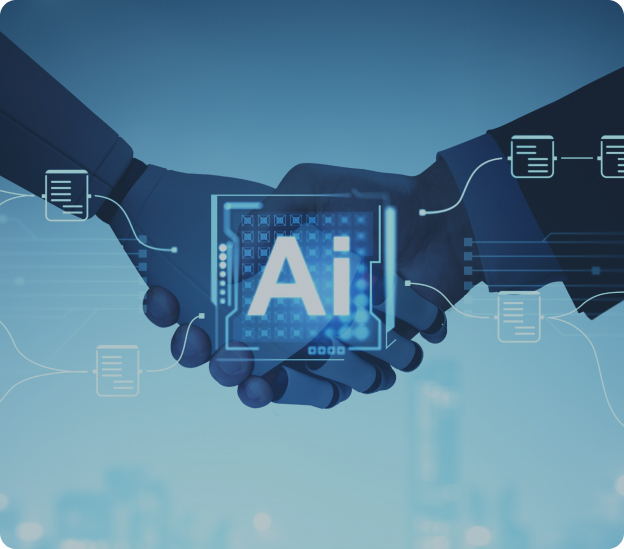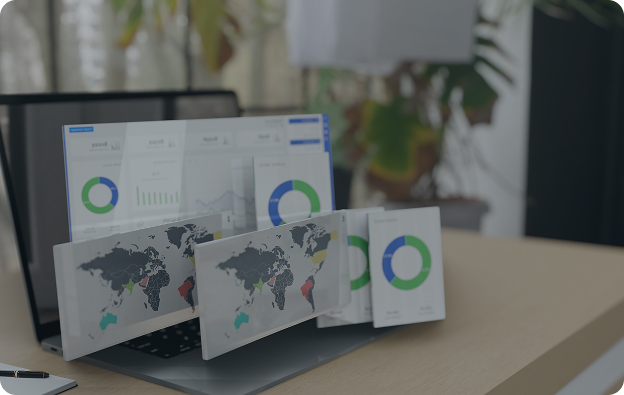Hyper-competitive deal environments are pushing private equity deal teams to their limits. They’re expected to source differentiated opportunities, act with speed and precision, and deliver superior returns, often under increasingly compressed timelines. Yet, many teams are still constrained by manual research, siloed data, and reactive workflows.
Private equity automation, powered by artificial intelligence, is quietly changing that.
Across the industry, top-performing firms are embedding AI in private equity deal processes, not just as an experiment to be leveraged in the future but as a present-day advantage. From intelligent sourcing to real-time anomaly detection and auto-generated IC memos, AI-powered due diligence is helping teams move faster, make sharper decisions, and scale their efforts.
In this article, we will explore how leading PE firms are applying artificial intelligence for deal sourcing and beyond and why following their lead is no longer optional. Whether your firm is navigating complex diligence, chasing tighter close windows, or seeking an edge in crowded auctions, purpose-built AI platforms like Kairos by Brownloop are making next-generation deal execution not just possible but repeatable.

Artificial intelligence in private equity isn’t about generic automation. Instead, it’s about systems trained to understand deal theses, EBITDA trends, and competitive auctions. These tools don’t replace analysts but empower them. The most impactful technologies include:
Top deal teams use AI to remove friction where it matters most, bringing in more qualified opportunities, faster LOIs, and higher win rates.
PE firms are no longer asking if AI belongs in their workflow but how fast they can integrate it. Forward-looking firms are already building AI into portfolio management systems and diligence stacks. By adopting platforms like Kairos, where PE-specific agents automate core workflows, firms are surfacing actionable insights at every step.
Sourcing teams are flooded with low-fit teasers, duplicative outreach, and CRM clutter. Manual research consumes time but misses off-market opportunities. They need a way to find targets that precisely match their thesis, track relationship momentum, and surface proprietary deal flow before competitors do.

Fragmented data and endless legal documents often slow private equity due diligence, delaying Investment Committee decisions and risking missed red flags. Teams need accelerated analysis for IC-ready outputs, freeing up partner time for strategic focus.

Operating data often arrives late or gets buried in spreadsheets. Early underperformance signals get missed, while dashboards lack PE-specific context. Real-time monitoring is the need of the hour to surface relevant trends, performance deltas, and strategic alerts across portfolio companies.

It is easy for operating partners to lose track of whether the underwritten value-creation plan is being realized. At the same time, playbooks live in slide decks, not systems. They require a system that aligns deal theses with actual performance and makes value levers measurable and trackable.

Exit preparation is reactive. The materials are often outdated, and market timing also depends on a gut feeling. AI in exit strategy planning needs to be data-backed and buyer-smart.

In competitive auctions, response time and conviction often make the difference. Deal sourcing with AI helps deal teams move fast by scoring deals for thesis fit, tracking warm relationships, and generating investment memos in hours, not weeks. Kairos enables faster LOIs and IC approvals, improving your win rate in a crowded market.
Manual diligence and memo prep consume valuable analyst time. Kairos automates document parsing, anomaly detection, and benchmarking, reducing time spent on repetitive tasks by up to 80%. That means fewer resources spent on busywork and more time focused on strategic analysis and cost efficiency using AI in private equity.
With AI, your deal team can evaluate more opportunities without hiring more associates. Kairos’s sourcing and screening agents let you explore more verticals, adjacent sectors, and off-market opportunities without stretching your team thin. That’s how firms scale private equity operations with AI.
Missed warning signs and delayed insights cost firms millions. Kairos’s diligence agents catch anomalies early, benchmark performance, and flag risks in real-time. Reducing risk with AI insights turns reactive diligence into proactive decision-making.
A leading private equity firm faced growing pressure from LPs to deliver timely and consistent DDQ and RFP responses. Version control issues and delays were jeopardizing fundraising timelines.

The result? Faster, more accurate submissions and a significant boost in LP trust and satisfaction.
Many PE firms operate with fragmented Excel sheets, siloed CRM notes, and PDF deal docs. AI systems struggle without clean, structured inputs, making outputs unreliable.
New tools often disrupt established workflows, requiring analysts to toggle between platforms or duplicate entries, leading to abandonment.
Few PE firms have in-house AI fluency. Without technical guidance or product ownership, even strong tools can be underdeliverable.
AI systems trained on flawed or incomplete data can reinforce existing biases, impacting sourcing, diligence decisions, or even hiring.
Black-box models make it hard for deal teams to explain AI-driven decisions, especially during LP reviews or audits.
Firms must ensure that sensitive deal information and LP data remain secure, auditable, and compliant with evolving regulations.
Begin with a narrow use case, like IC memo generation or DDQ automation, where ROI is immediate and impact is visible.
Generic tech stacks require high customization. Platforms like Kairos are AI tools for private equity firms, with pre-trained agents, embedded governance, and seamless CRM/Excel integration.
Upskill internal teams with training and AI fluency programs. Kairos simplifies this with intuitive UIs, templated workflows, and ongoing enablement support.
Ensure your AI implementation includes transparent models, trackable audit trails, and built-in human review capabilities that Kairos delivers by default.
AI adoption doesn’t need to begin with a firm-wide transformation. Leading PE teams start with a focused pilot, often in a high-friction area like CIM parsing, IC memo drafting, or DDQ automation. By narrowing the scope and defining clear KPIs (e.g., time saved, review cycles reduced), firms can test the impact without disrupting core workflows. Kairos accelerates this process with ready-to-use agents and templates designed for immediate deployment and quick iteration.
Generic AI platforms often break down in PE settings because they lack industry-specific logic, terminology, and integration flexibility. Kairos was purpose-built for private equity. It connects seamlessly to Excel models, CRMs, document repositories, and dashboards, embedding into your ecosystem rather than replacing it. Importantly, Kairos also includes built-in audit trails, version control, and human review checkpoints to ensure transparency, compliance, and trust.
Adopting AI isn’t just a tech decision but a team evolution. Deal teams don’t need to become data scientists, but they do need fluency. Training sessions, product onboarding, and pairing investment professionals with data-savvy collaborators can accelerate this shift. Kairos makes adoption intuitive, offering structured workflows and user-friendly interfaces that make AI feel like a co-pilot, not a threat.
Once the pilot proves successful, it’s critical to track key outcomes like reduced turnaround time, increased deal capacity, or improved LP engagement. This creates the internal momentum to scale across other functions like sourcing, portfolio monitoring, or exit planning. Kairos provides centralized dashboards to measure usage, output, and impact, so you’re always improving, not just deploying.
Explore how AI in private equity is unlocking new opportunities.
AI is the new standard in private equity performance. From sourcing to exit, top PE firms are embedding AI across the deal lifecycle to gain speed, scale, and strategic clarity. They’re not replacing human expertise, only enhancing it.
Platforms like Kairos are making this transformation achievable and repeatable. With domain-trained agents, seamless integrations, and built-in governance, Kairos empowers deal teams to execute faster, evaluate deeper, and operate smarter.
The firms that lead tomorrow won’t be those with the most spreadsheets or the biggest teams but the ones with the most intelligent systems. And those systems are already here.

Explore how Brownloop can help your firm lead the next era of smarter, faster, and more
transparent
private equity.
AI in deal sourcing automates the time-consuming parts of diligence, like parsing CIMs, extracting financials, detecting red flags, and drafting memos. It accelerates review cycles and reduces manual errors, enabling deal teams to focus on strategic analysis.
Key challenges include unstructured data, integration with existing workflows, internal skill gaps, and concerns around bias or transparency. Choosing a purpose-built platform like Kairos helps mitigate these issues by embedding AI directly into PE-native systems and processes.
AI increases sourcing velocity, improves deal screening accuracy, and delivers faster IC outputs. It enables firms to pursue more opportunities without scaling headcount, giving them a real edge in competitive bidding and PE automation platforms.